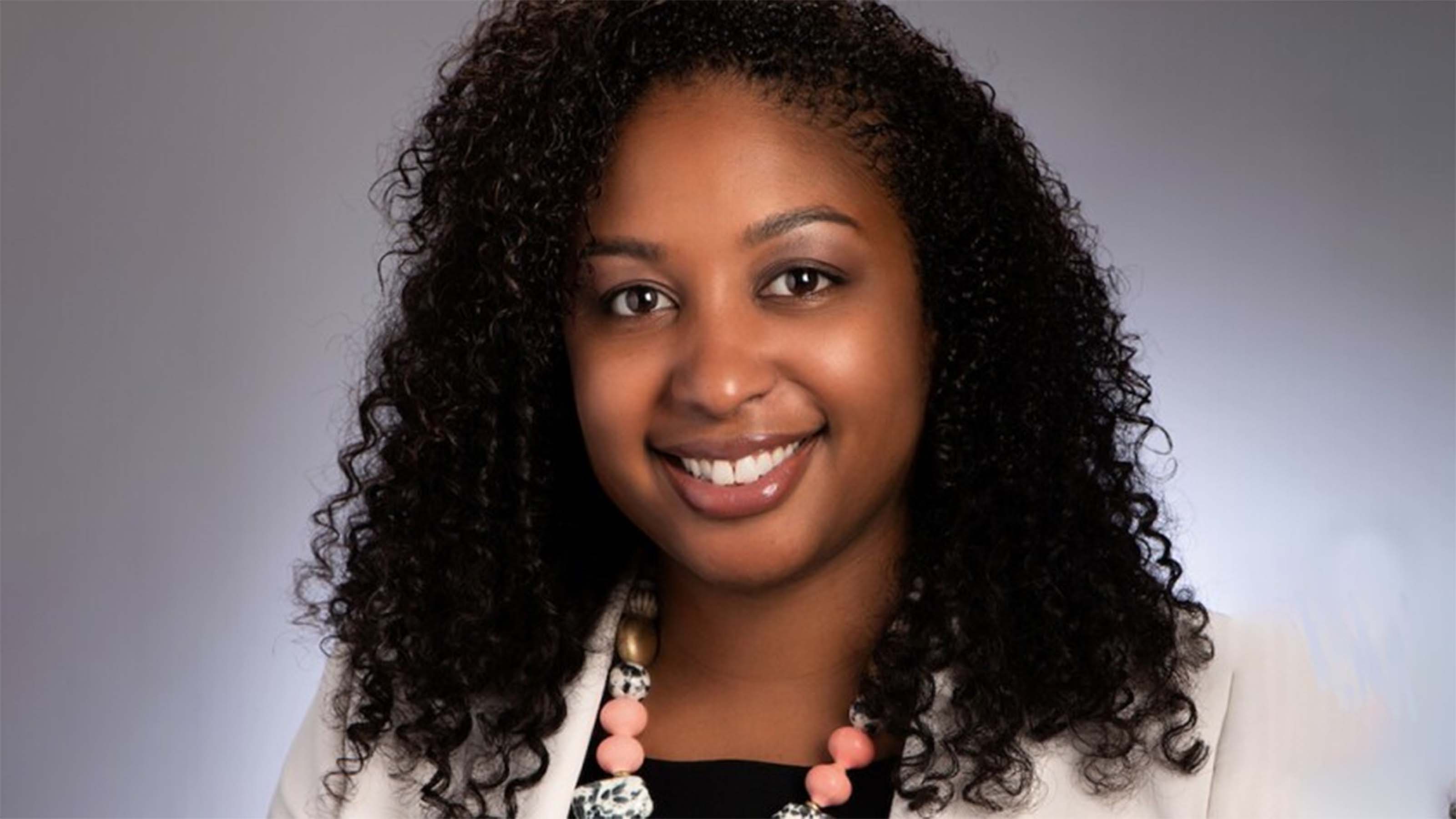What to Know About the New FICO Score
Credit expert Gerri Detweiler joins our hosts Sandy Block and Ryan Ermey to talk about how the new FICO scoring system could affect your credit score. Also, the pair explains the history of bear markets and why you need to tax-diversify your retirement accounts.

Profit and prosper with the best of Kiplinger's advice on investing, taxes, retirement, personal finance and much more. Delivered daily. Enter your email in the box and click Sign Me Up.
You are now subscribed
Your newsletter sign-up was successful
Want to add more newsletters?

Delivered daily
Kiplinger Today
Profit and prosper with the best of Kiplinger's advice on investing, taxes, retirement, personal finance and much more delivered daily. Smart money moves start here.

Sent five days a week
Kiplinger A Step Ahead
Get practical help to make better financial decisions in your everyday life, from spending to savings on top deals.

Delivered daily
Kiplinger Closing Bell
Get today's biggest financial and investing headlines delivered to your inbox every day the U.S. stock market is open.

Sent twice a week
Kiplinger Adviser Intel
Financial pros across the country share best practices and fresh tactics to preserve and grow your wealth.

Delivered weekly
Kiplinger Tax Tips
Trim your federal and state tax bills with practical tax-planning and tax-cutting strategies.

Sent twice a week
Kiplinger Retirement Tips
Your twice-a-week guide to planning and enjoying a financially secure and richly rewarding retirement

Sent bimonthly.
Kiplinger Adviser Angle
Insights for advisers, wealth managers and other financial professionals.

Sent twice a week
Kiplinger Investing Weekly
Your twice-a-week roundup of promising stocks, funds, companies and industries you should consider, ones you should avoid, and why.

Sent weekly for six weeks
Kiplinger Invest for Retirement
Your step-by-step six-part series on how to invest for retirement, from devising a successful strategy to exactly which investments to choose.
Ryan Ermey: FICO is unveiling a new scoring model, which depending on your behaviors could affect your credit score. Credit expert Gerri Detweiler breaks everything down in our main segment. On today's show, Sandy and I discuss the S&P 500 entering bear territory and tell you why your portfolio needs to be tax diversified. That's all ahead on this episode of Your Money's Worth. Stick around.
- Episode Length: 00:25:43
- SUBSCRIBE: Apple Google Play Spotify Overcast RSS
Ryan Ermey: Welcome to Your Money's Worth. I'm Kiplinger's associate editor Ryan Ermey, joined as always by senior editor Sandy Block. Sandy, we are still here.
Sandy Block: We are still here for the moment. This has been a tumultuous week for everyone.offices on Monday and a new studio. And there is a possibility that Sandy and I are going to be recording remotely here at some point, but we are going to try to keep everything on the tracks for all of you folks who are interested in hearing about your personal finances. And I wanted
From just $107.88 $24.99 for Kiplinger Personal Finance
Become a smarter, better informed investor. Subscribe from just $107.88 $24.99, plus get up to 4 Special Issues

Sign up for Kiplinger’s Free Newsletters
Profit and prosper with the best of expert advice on investing, taxes, retirement, personal finance and more - straight to your e-mail.
Profit and prosper with the best of expert advice - straight to your e-mail.
Ryan Ermey: Yes. And we are moving offices as we record on Friday the 13th, we will be at new to kick the show off with a little bit of a market talk and we're going to be on top of this, into all of the ways that the coronavirus is affecting people's finances. But we also do want to keep in mind that people's financial lives go on.
Ryan Ermey: So it's not going to be the corona hour every episode, but we are going to be commenting when we see it as particularly important. So as of yesterday's closing, like I said, we were recording on the 13th here. The Standard & Poor's 500 stock index had reached bear market territory. So it's, as we've discussed before, a decline of 20% or more from the indexes previous high, in this case back in mid-February. So it was an extremely rapid decline. It took just 16 sessions for all of this to go very south. The coronavirus pandemic, the ensuing plunge in oil prices. So the 11-year bull market comes to an extremely swift end.
Sandy Block: Right. And I think the other thing that has a lot of people on edge is that this sharp decline in the market also comes at a time when many people are starting to worry about their jobs. They might work in the tourism industry, they've been told to work from home. There's a lot of talk about whether this pandemic is going to push the economy into a recession. So even though a bear market is not surprising, we've been saying that that's just sort of how cycles go. This is pretty extraordinary in the confluence of events that threaten your economic security.
Ryan Ermey: It's during times of extreme volatility and uncertainty like these that I tend to rely on people who have been watching the market for much longer than I have and rely on historical data to try to tell us how to sort of make sense of this. Sam Stovall is someone who I like to read. He's the investment chief -- investment research chief. Sorry, Sam, if I don't get your... we talk all the time. I just call him Sam, at CFRA, which is an investment research firm. And tracking prior bear markets. And this is the 13th since World War II, tracking prior ones, the ones that have experienced the swiftest sell-offs have historically resulted in rather shallow declines. And, so, prior bear markets hitting the threshold faster than average have logged declines of just 26% compared with 33.5% which is the average for all bear markets. So the ones that drop fast tend to drop the least.
Ryan Ermey: Another note from Tony Dwyer at Canaccord Genuity is that just because you think you might be near the bottom of a bear market, it doesn't mean that it's over. So just because we're expecting perhaps a shallower than average decline, doesn't mean that we're feeling out the bottom quite yet because right now the market, he says, is likely to move more based on human nature rather than fundamental data, which is what typically drives markets, right? Corporate earnings and valuation expansions and dividends. So we are experiencing very much the sort of panic phase of this crash, which eventually there is going to be some kind of relief phase, some kind of understanding that the markets in the world aren't coming to an end and then we're going to trying to set the bottom here. But he does believe nevertheless that the bulk of the crash, at least in terms of percentage drop, has already happened.
Sandy Block: That's interesting. And there has been a bit of a soft, some comeback today, although the market is up, although not by a lot. So it sounds like there's going to be a lot of bouncing around just because there's so much uncertainty now about how long this coronavirus is going to last and what its impact is going to be.
Ryan Ermey: Right. So, we're not making any prognostications in terms of what the market's going to do. We are going to reiterate the advice that you stick to your investing plan. Invest in line with your tolerance for risk. Hopefully you have some manner of dollar cost averaging in place. I personally have my 401(k) set to make auto contributions and I'm not looking at it for now. So, we want to tell everyone, who's really worried about the market, hang in there. We're going to come to you with more information as we collect it. Coming up Gerri Detweiler tells you everything you need to know about changes to the FICO Score.
Ryan Ermey: We are back and we're here with Gerri Detweiler. She is a credit expert. She's the education director for Nav, a business credit and financing website. Gerri, thank you so much for coming on.
Gerri Detweiler: Oh, thank you.
Ryan Ermey: So, today we're talking about the new FICO score, which many of our listeners may have seen in the news. What, Gerri, is the impetus behind introducing this new FICO scoring system? And broadly, how does it differ from the current scoring model?
Gerri Detweiler: Sure. So FICO 10, and in particular FICO 10 T, takes advantage of something that's relatively new, it's called trended data. And so what it does is it gets a view of your credit over time and uses that information to calculate your credit score. In the past, your credit report has traditionally been a moment or a snapshot in time. So, yes, it has information about accounts you've held for many years, but it doesn't show, for example, whether last month you had a high balance on your credit card and this month you have a low balance or last month you paid in full, but this month you're not. So this new trended data will allow the credit score to capture trends, especially in balances like on things like credit cards. So it can see if your balances are going up or going down or even if you're shifting balances from one type of debt to another.
Sandy Block: So with that in mind, Gerri, who's going to see their scores possibly go up under this new formula and who might actually be hurt by it?
Gerri Detweiler: Well, FICO says that consumers with strong credit scores are likely to continue to see strong credit scores and they may even see their scores go up. Conversely, they said that consumers who have low credit scores, and are struggling, are probably going to see their credit scores go down. But I think there's one group of consumers that in particular could be impacted by this score and that's consumers who are consolidating credit card debt with personal loans. One of the strategies that works right now often, if your high balances on your credit cards are hurting your credit score, is to take a personal loan, pay off the credit card, leave it open, and reduce that debt usage or utilization ratio that can hurt your credit score.
Gerri Detweiler: It appears that FICO 10 T may be able to identify that behavior and that strategy may not work as well in the future as it has in the past. I still recommend consumers, who are trying to pay off their credit cards, consider a consolidation loan because it may help them get out of debt faster and get off that minimum payment treadmill. But in the future it might not be as an effective strategy for boosting your credit score.
Ryan Ermey: So when do we expect that this form of scoring is going to actually be adopted by lenders? And furthermore, there's a lot of different scores out there. What should people really be looking at?
Gerri Detweiler: Well, this is the question I get all the time, right? What is the most important credit score? What's my real credit score? And consumers don't even realize that there are more than 40 different versions, just of FICO scores available. There are ones for bank cards and ones for auto loans, and a different one that's used for mortgage lending. So I would say first of all, this score is new. It is going to be introduced in the summer of 2020 and issuers tend to be pretty slow to adopt new models, especially traditional lenders like banks and credit card issuers. They want to stick with what they know works and what will help them make the right decisions.
Gerri Detweiler: So don't anticipate this happening overnight. But trended data is a trend in a direction where I think the industry is going. So over time I think it will be more and more common for credit scoring models and lenders to look at trended data and look at the insights that information provides. So you can still prepare for it just by trying to pay down your credit card debts and trying to keep your debt levels manageable and of course paying your bills on time. That's always positive behavior for any credit score.
Sandy Block: So it sounds like, Gerri, sort of the regular, the advice that you have always given people would still hold, it might be even more relevant in this new scoring environment.
Gerri Detweiler: I think absolutely. Unfortunately some quicker fixes like shifting around those credit card balances may not work as well in the future, but it is a while out before we'll see this widely adopted and it just emphasizes, again, the strategy of paying down those credit card debts can help you save money, get out of debt and it's a good thing for your credit scores as well.
Ryan Ermey: Well, I mean, as Sandy put it, your normal advice is still what's going to be working. But for all of our devoted listeners who may not have heard your typical advice, what advice do you have for people who either have good scores and are looking to maintain them or for people who are doing a little bit of repair work on their score?
Gerri Detweiler: I think that the two things that are going to impact your scores the most are your payment history and your debt, in particular those balances on your credit cards as compared to the credit limits. So with payment history, as negative information gets older, it does carry less weight. So if you can get information off your credit report through a dispute, for example, that's great, but if you can't, understand that as long as you keep paying on time, as that information gets older, it will have less impact on your credit scores. And then on the debt side, it'll look at those credit card balances. There's no magic number that you have to stay below. It's not 30% or 28%, FICO says it can vary depending on the information your credit scores.
Gerri Detweiler: But what I tell consumers is try to keep each of your credit cards at, let's say the starting goal is 30% debt usage, so you're within 30% of your available credit. And then if you don't see the results on your credit score that you want, try to going down to 25% on all of them, then 20%. As you can pay down those debts, many consumers will see their credit scores increase.
Ryan Ermey: Now, and this is a habit that I may be outing myself a little bit here, but occasionally I try to pay my credit card down every single month, pay the whole balance down. But, sometimes maybe I'll have like a big flight, because I have to go to a bachelor party or something. I put that on my credit card. Maybe I don't pay my whole balance off and the balance is fluctuating in my account. Is that going to be different or a bigger or lesser deal under the new scoring system? Because it sounds like they're going to be keeping track of trends in your balance.
Gerri Detweiler: Yeah. The one thing that credit score doesn't do a good job of identifying right now, and I don't see this changing immediately, is that there's a lag between when you get your bill and when it's due and when you make your payments. So typically most issuers report at the end of your billing cycle. That's when they tell you how much you owe this month and offer to let you make the minimum payment or pay in full. And then there's, you usually have about 25 days to make that payment and in the meantime you're making the payment but that isn't reflected on your credit report. So one strategy that may help, if high balances are affecting your credit score. And this can affect someone like me who loves my rewards cards and always pays in full. I might have a high balance one month, right?
Gerri Detweiler: I will go online a few days before the due date and make a payment online so that the balance at the end of the billing cycle, at the end of that month, which is listed on your statement, is lower. And that way the amount reported to the Credit Bureau is lower, as well. So I think that could be a strategy for someone who pays in full but really wants to get the most out of their rewards cards and sometimes does have a higher balance, even though they pay it in full.
Ryan Ermey: Well, fantastic. I mean, what's the point of having a personal finance podcast if I can't occasionally ask the experts about my own finances? So, Gerri, we really appreciate you coming on. Where can people go to find all of the wonderful stuff that you're working on?
Gerri Detweiler: Sure. You can find me on the Nav blog. I answer questions, as well as write lots of stories about credit.
Ryan Ermey: Well, fantastic. And we also have a story about the new FICO scoring in the April issue of Kiplinger's Personal Finance, should be on newsstands in your mailbox now. Gerri, thank you so much again for coming on.
Gerri Detweiler: Oh, my pleasure.
Ryan Ermey: After the break, Sandy breaks down why you need a mix of Roth and traditional retirement savings accounts. Don't go anywhere.
Ryan Ermey: We are back and before we go, Sandy, you wanted to talk a little bit about diversification, but not in the way that we often think about diversification when it comes to investing.
Sandy Block: Right. And we always talk about the importance of diversifying your portfolio and that's very real now, because a diversified portfolio is going to be hit a lot less hard than one that's unbalanced in times like these. But tax diversification is important too. When you retire, people have gotten pretty good about putting money in their 401(k)s and maybe an IRA and that's all good. And we... want to fault anyone for doing that. But remember that when you retire and take that money out, if it's in a traditional 401(k), traditional IRA, that money is tax deferred and you will pay taxes on it when it comes out. Fortunately, now we have tools that you can use to reduce the tax bill when you retire and the two are a regular Roth or a Roth 401(k).
Sandy Block: And I think if you're being smart now and continually investing, because you're basically buying stocks at a bargain, so you're contributing to your 401(k) regularly, not looking at it as Ryan said. If your company offers a Roth 401(k), it's really smart to put some of that money there, because you won't get the tax break on that money now, but when you retire and take it out, you won't pay taxes on it. So all the future growth and say right now you're buying stocks cheap, someday the market recovers and all that growth that you get between now and you retire will be tax free.
Ryan Ermey: Right. So not only is the money that you put in tax free when you take it out, but all of your earnings on that money is tax free...
Sandy Block: Right. So, it's really valuable. If you don't have a Roth 401(k) at your job, you can still invest in a regular traditional Roth. There are some income limits, but in particular...
Ryan Ermey: Roth IRA.
Sandy Block: ... Roth IRA, excuse me. Traditional IRA is one where you get a tax deduction. A Roth IRA is again after tax. They're a great idea for young people, because when you're young, you're not getting that much of a break on taxes by deducting them anyway. But with the Roth you can put the money in, it grows and grows and grows and then you take it out. One other nice thing about a Roth, and I don't really encourage this, but it's good to know, is that you can always withdraw your contributions tax free. So a Roth can be a backdoor emergency fund, if you really, I mean I believe you should leave that money in there for retirement, but if you hit a really rough patch, like right now, maybe you're out of work or you furloughed or something like that, you can tap that money up to the amount that you contributed. No penalties, no taxes.
Ryan Ermey: Once again, you can't take your earnings out of it.
Sandy Block: You can't take the earnings out. But you can take out what you put in. And again, that's not really what this is designed to do, but it's a nice thing to know. And Roths aren't for everyone. There are situations where maybe the deduction is better and we're going to have a pretty serious discussion of this in the May issue, to Roth or not to Roth. But again, as you look at saving for retirement, which you should be continuing to do, don't just think about your investments -- think about your taxes, as well.
Ryan Ermey: So I've always told young people if you have a choice, get a Roth. You're probably in a low tax bracket now, you can pay on that nice low tax bracket, then you let your money and your earnings grow tax free. So you get a big tax advantage with a Roth. But should I, if I'm a young person thinking down the line, should I not have all of my investing eggs in one basket?
Sandy Block: If you are investing all of your money, all of your retirement savings is going in a 401(k), I think it's a good idea to have a little bit of both. Put some money in a regular 401(k), some money in a Roth. Even if you direct all of your contributions to a Roth 401(k), any match is going to go into the pretax 401(k). So you're going to have some pretax money there anyway. But I think it's just good to, and as you progress, maybe you do value the tax break a little bit more. So maybe you do want to put a little more in a regular 401(k) but I think it's just a good idea to have some of both. It gives you so much more flexibility when you retire to have some tax free money, some money that will be taxed and even a taxable account, if you can afford it, have a brokerage account, that capital gains rates now are pretty low and that can be a pretty tax efficient source of retirement savings as well.
Ryan Ermey: Right. And the other thing to think about, especially if you're in retirement now, is that a certain kind of retirement vehicle requires, you take required minimum distributions from it.
Sandy Block: Right. If you're 72, you have to take money out of your tax deferred accounts. And that's another reason. And one other thing I want to mention, I mentioned it a couple of weeks ago, but it's unfortunately even more relevant today, is that if you have a lot of money in an IRA and you want to convert it to a Roth, remember that you have to pay taxes when you do a conversion, but you pay taxes on the value of the IRA when you convert. Well, right now if your IRA is taking a big hit or maybe in a couple of weeks it takes an even bigger hit. That is an opportunity to convert it. You convert it to a Roth, you don't have to convert it all, convert some of it to a Roth. When the market recovers, everything you gained from then on is tax free. So this is an opportunity that, again, make sure you can pay the tax bill, but sometimes the market does hand you opportunities in ways you don't see. And this would be one.
Ryan Ermey: All right, well, all fantastic stuff. We will have more coverage of this in the May issue of Kiplinger's. And for anyone listening from working from home or in quarantine or whatever, please let us know if there are pertinent financial topics that you are running into that maybe the editors here at Kiplinger's haven't thought about. Things that we'd love to be able to cover for you. Questions that we'd love to be able to answer for you. Obviously, this is going to uncork a whole host of financial questions that we may not have even considered. So email podcast@kiplinger.com, ryan_ermey@kiplinger.com, sandra_block@kiplinger.com, please write to us. We want to be reaching out to you if at all possible.
Ryan Ermey: That's it for this episode of Your Money's Worth for show notes and more great Kiplinger content on the topics we discussed on today's show visit Kiplinger.com/links/podcasts. You can stay connected with us on Twitter, Facebook or by emailing us at podcast@kiplinger.com. And if you like the show, please remember to rate, review and subscribe to Your Money's Worth wherever you get your podcasts. Thanks for listening.
Links and resources mentioned in this episode
- Yardeni.com: A History of Bull and Bear Markets
- Nav Blog
- Changes Are Coming to Your Credit Score
- 7 Habits of People With Excellent Credit Scores
- Take the Scenic Route: Diversification on the Road to Retirement
- How to Keep More Money in Retirement: Diversification That Minimizes Taxation
- Why You Need a Roth IRA
- Nearing or In Retirement? Capitalize on Tax Cuts with a Roth IRA Conversion
Profit and prosper with the best of Kiplinger's advice on investing, taxes, retirement, personal finance and much more. Delivered daily. Enter your email in the box and click Sign Me Up.

Block joined Kiplinger in June 2012 from USA Today, where she was a reporter and personal finance columnist for more than 15 years. Prior to that, she worked for the Akron Beacon-Journal and Dow Jones Newswires. In 1993, she was a Knight-Bagehot fellow in economics and business journalism at the Columbia University Graduate School of Journalism. She has a BA in communications from Bethany College in Bethany, W.Va.
-
 5 Vince Lombardi Quotes Retirees Should Live By
5 Vince Lombardi Quotes Retirees Should Live ByThe iconic football coach's philosophy can help retirees win at the game of life.
-
 The $200,000 Olympic 'Pension' is a Retirement Game-Changer for Team USA
The $200,000 Olympic 'Pension' is a Retirement Game-Changer for Team USAThe donation by financier Ross Stevens is meant to be a "retirement program" for Team USA Olympic and Paralympic athletes.
-
 10 Cheapest Places to Live in Colorado
10 Cheapest Places to Live in ColoradoProperty Tax Looking for a cozy cabin near the slopes? These Colorado counties combine reasonable house prices with the state's lowest property tax bills.
-
 PODCAST: Tax Breaks for College Finance with Kalman Chany
PODCAST: Tax Breaks for College Finance with Kalman ChanyPaying for College Paying for (ever-pricier) college is a challenge that this consultant meets head on with highly specific guidance.
-
 PODCAST: Car-Buying in an Inflated Market with Jenni Newman
PODCAST: Car-Buying in an Inflated Market with Jenni NewmanBuying & Leasing a Car With cars both scarce and expensive these days, what to do if you want – or need – a new ride? Car-buying strategist Jenni Newman of Cars.com shares some tips. Also, more on the magical 9% savings bond.
-
 PODCAST: How to Find a Job After Graduation, with Beth Hendler-Grunt
PODCAST: How to Find a Job After Graduation, with Beth Hendler-GruntStarting Out: New Grads and Young Professionals Today’s successful job applicants need to know how to ace the virtual interview and be prepared to do good old-fashioned research and networking. Also, gas prices are high, but try a little global perspective.
-
 PODCAST: Is a Recession Coming?
PODCAST: Is a Recession Coming?Smart Buying With a lot of recession talk out there, we might just talk ourselves into one. We take that risk with Jim Patterson of The Kiplinger Letter. Also, dollar stores: deal or no deal?
-
 PODCAST: This Couple Tackles Love and Money as a Team
PODCAST: This Couple Tackles Love and Money as a TeamGetting Married Fyooz Financial, the husband and wife team of Dan and Natalie Slagle, have carved out a niche advising other couples with the money questions that come with pairing up. Also, where is this troubled stock market headed?
-
 PODCAST: Which Documents to Keep, Which to Shred and Which to Scan
PODCAST: Which Documents to Keep, Which to Shred and Which to Scanhome insurance A speedy recovery from disaster can depend on your recordkeeping. Kiplinger’s Personal Finance writer Rivan Stinson tells us how to get our papers in order.
-
 PODCAST: High Gas Prices with The Kiplinger Letter’s Jim Patterson
PODCAST: High Gas Prices with The Kiplinger Letter’s Jim Pattersoncars Why are we paying so much more at the pump? How long will it last? What can you do? Plus: Congress is making changes to retirement-savings rules again.
-
 PODCAST: The Future of Certified Financial Planners with Kamila Elliott
PODCAST: The Future of Certified Financial Planners with Kamila ElliottBecoming an Investor CFPs will tell you (and we’d agree) that not all financial advice is the same. We talk with the chair of the CFP Board about what she’s doing to preserve her organization’s brand and extend its reach. Also, the right way to file your tax returns for free.

